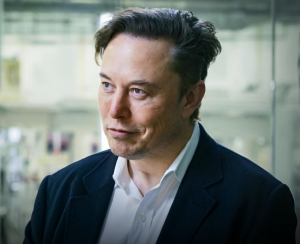In recent months, a significant gathering of influential figures in the investment world has drawn attention to the growing focus on carbon removal technologies, promising both considerable environmental benefits and lucrative returns. Spearheaded by prominent investors such as Bill Gates, Jeff Bezos, and Prince al-Waleed bin Talal, discussions have centered around supporting companies that aim to eliminate carbon dioxide from the atmosphere for profit.
### The New Climate Economy: The Race for Carbon Removal Technologies

### The New Climate Economy: The Race for Carbon Removal Technologies
As wealthy investors unite to tackle climate change, a new gold rush emerges in carbon dioxide removal technologies, revealing both potential and challenges ahead.
The urgency of combating climate change has intensified as global temperatures reach alarming highs, prompting a financial frenzy towards carbon capture initiatives. The pursuit of this unproven technology has attracted over $5 billion in funding since 2018, indicating a shift towards a potential new industry of carbon removal.
Industry experts, including Deep Sky’s CEO Damien Steel, emphasize the unprecedented opportunity presented by carbon capture efforts, citing favorable market conditions and heightened investment in this sector. However, the technology remains in its infancy, and doubts about its scalability and effectiveness linger.
While the promise of cleaning the atmosphere resonates with environmentally conscious investors, the complexities of implementing such technologies on a large scale challenge their viability. As such, this emerging industry not only serves as a beacon of hope against climate change but also highlights the balancing act between environmental responsibility and financial profitability.
This underlines the critical conversation surrounding climate solutions — one that must navigate the intricate intersection of innovation, investment, and genuine sustainability as stakeholders seek to capitalize on what they believe could become an integral component of global emissions reduction strategies.
Industry experts, including Deep Sky’s CEO Damien Steel, emphasize the unprecedented opportunity presented by carbon capture efforts, citing favorable market conditions and heightened investment in this sector. However, the technology remains in its infancy, and doubts about its scalability and effectiveness linger.
While the promise of cleaning the atmosphere resonates with environmentally conscious investors, the complexities of implementing such technologies on a large scale challenge their viability. As such, this emerging industry not only serves as a beacon of hope against climate change but also highlights the balancing act between environmental responsibility and financial profitability.
This underlines the critical conversation surrounding climate solutions — one that must navigate the intricate intersection of innovation, investment, and genuine sustainability as stakeholders seek to capitalize on what they believe could become an integral component of global emissions reduction strategies.





















